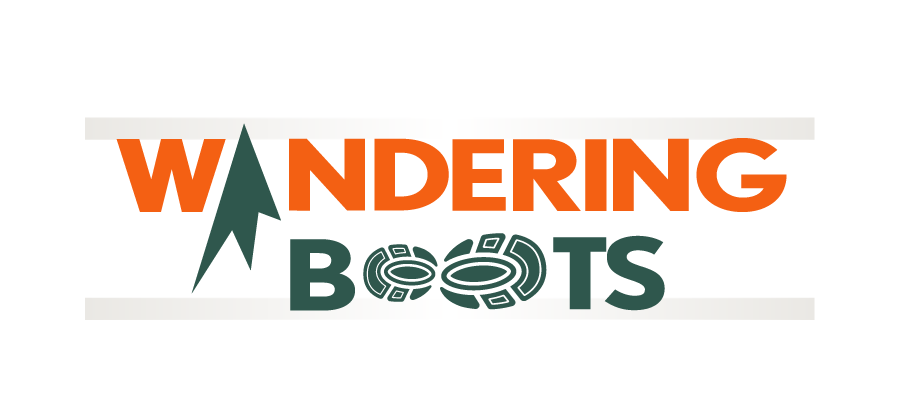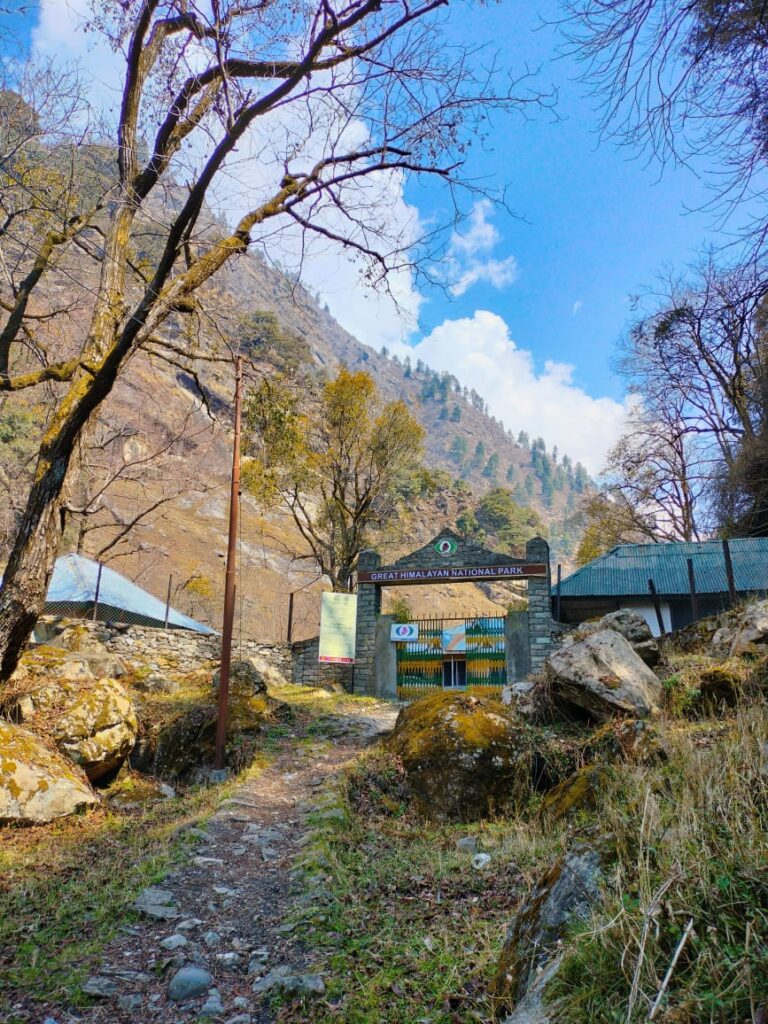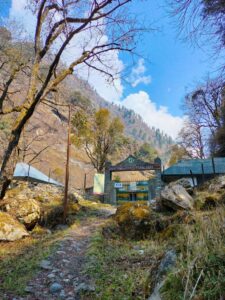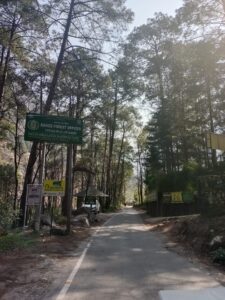- Overview
- Trip Outline
- Trip Includes
- Trip Excludes
- Gallery
- Reviews
- Booking
- FAQ
The Trek
The Great Himalayan National Park (GHNP) is one of the most recent additions to a huge network of wildlife reserves found in Himalayan region in India. On this trek experience walking through dense forests, over lush green hills, exploring the exotic flora and fauna of the region. You have great chances of spotting some rare birds and mammals including the Blue sheep, the Himalayan Tahr, or even the rare Brown Bear!
GHNP was awarded UNESCO World Heritage Site status in 2014, in recognition of its outstanding significance for biodiversity conservation.
The Area
The Great Himalayan National Park is located in Banjaar Sub-Division of Kullu District of Himachal Pradesh, India. Kullu is a prime tourist and adventure destination. It’s unparalleled beauty along with easy accessibility has attracted many adventurists. No wonder some call it the Chamonix of India. The language the people speak here is called Kulvi. Apple is the major cash crop and the whole valley turns red in August!
What to expect from this trek
Lots of wildlife in the form of birds and mountain goats!
Lovely snow clad mountain views of the Parvati valley
Offbeat trail, less footfall
Wholesome experience with enough breaks near water bodies!
Expected Weather
- Chances of rain/hail – Low
- Snow on trail- None
- Temperatures: Afternoon – 20 degrees, Nights – Around zero degrees at higher camps
Day 1 - Arrive in Jibhi.
Check into the homestay we have booked for you.
Trek briefing in the evening.
Day 2 - Drive to Gushani (1500 mts)
Drive time: 1 hr
Trek from Gushani to Rolla ( 2100 mts). Trek distance: 9 kms
Beautiful walk through forest with mild altitude gain.
Day 3 - Trek from Rolla to Shilt hut (3100 mts)
Trek distance: 7 kms
Moderate altitude gain with steep climbs in part. Overall a moderately challenging day
Day 4 - Trek from Shilt hut to Rakhundi (3622 mts)
Trek distance: 7 kms
Moderate altitude gain. Overall a moderately challenging day. Very picturesque day
Day 5 - Trek from Rakhundi to Rolla (2100 mts)
Trek distance: 13 kms
All descending. Long but picturesque day
Day 6 - Trek from Rolla to Gushani (2100 mts)
Trek distance: 9 kms
Mild to moderate descent. Easy day
Trek finishes.
We will provide a common room to freshen up for people who will be leaving Gushani today.
You can make it in time to catch a night Volvo bus to Delhi/CHD from Aut Tunnel (Tirthan entry point).
- All accommodation from Day 1 to Day 6.
- Meals from Day 1 to Day 6.
- Rentals for all common gear provided to you like tent, sleeping bags etc.
- Forest entry permission charges.
- Guide and expertise charges.
- Trekker permits
- 5% GST
- Meals or drinks purchased by participants during the travel or trek (example biscuits, fruits etc)
- Rentals for personal gear
- Travel to Gushaini and back (we can help arrange / facilitate transport once the group is formed)
- Accommodation in Gushaini after the trek (we can provide recommendation for stay)
- Backpack offloading charges. You are expected to carry your own backpack. Trekkers unable to do so can opt for a porter service at ₹350/day.
Gushaini is 98.5 Kms from Manali, 51 kms from Bhuntar airport, 267 kms from Chandigarh, 509 kms from Delhi and is linked through Himachal Pradesh State Road Transport Corporation (HPSRTC) and some private travel services.
A certified trek leader, a guide, cook & porters will accompany you during the trek
No. Guests are expected to carry their own power banks.
1. Good Sturdy Backpack: Prefer a trekking pack over a backpacking one. The size of the backpack depends upon the participant. Normally for a 5-6 day trek a 40-50 litre pack should suffice.
2. Shoes: Any waterproof trek (not hike) shoe would be ideal.
3. Socks: 3 pair cottons and 2 pairs of woollens.
4. Trek pants (ideally water resistant): They are very important and help you a great deal on your trek. You can get two quick dry summer trek pants. If you don’t have a trek pants, you can replace it with Gym track pants. Don’t trek in Jeans/ Pants.
5. T-shirt/ Base layer: One can get 2 T-shirts/ trekking base layer on the trek, one of which can be full sleeved. Avoid cotton and prefer dry fit.
6. Fleece/ Sweater/ good quality Hoodie: 1 fleece jacket or sweater. Fleece is preferred over sweater (or hoodie) as it is lightweight and easy to carry. Sweaters and Jackets can be heavier than Fleece for the warmth they offer.
7. Down/ Padded Jacket – Down/ Padded jacket (Upto -5 degrees). If you don’t want to get a padded/ down jacket, get two fleeces.
8. Cotton track pants for camp – These are specifically for cold evenings at the campsite. This can be ignored if you are comfortable wearing your trekking pants in the camp.
9. Thermals: 1 pair. We wear thermals only upon reaching the campsite not while trekking.
10. Windproof Jacket: All rain proof can be used as wind proofs. Required as an additional layer during trekking in windy conditions. Avoid if you have a rain proof jacket.
11. Rainwear:
Option 1 – Rain set: One Waterproof jacket (3000 mm waterproofing), Rain proof pants and Bag cover
Option 2 – Poncho: Covers your body and bag completely.
We recommend Option 1 as poncho makes trekking difficult.
12. Woolen Cap/ Balaclava-1: To cover your ears, head and neck. Get one woollen cap and one neck warmer or balaclava.
13. Neck Warmer/ Scarf - 1: For evenings. Avoid if you are comfortable using a Balaclava.
14. Gloves: 2 gloves out of which 1 can be waterproof and one woollen. The waterproof one has to ideally be larger than you normally use so that you can wear both your gloves together if required.
15. Suncap – 1
16. Sunglasses – 1
17. Toiletries – Also include sunscreen, moisturizer and lip-cream
18. Headlamp/ Torch -1. Preferably head lamp.
19. Trekking pole
20. Two water bottles (1 litre each) – One can also get a hydration pack.
21. Camp shoes/ Flip flops for camp
22. Plastic covers for inside the backpack to keep your clothes dry
23. Daypack – Required if you have a summit days climb. Preferably one that can be compressed.
24. Documents: 2 passport sized photograph, Address and Photo proof (Driving License or Aadhaar card), Doctor’s medical certificate saying that you are fit for the trek. We reserve the right to not take you on the trek if you fail to produce this.
25. Trekking pole
Yes, you are ideally expected to carry your backpack. But you do have an option of offloading your bags on a mule for an additional cost. The cost will be INR 400/ per day per bag (weight not exceeding 8kg). One is expected to inform us about offloading 1 week prior to the trek.
Yes, this trek is ideal for first timers.
You can prepare for the trek with a combination of Cardio & Strength activities
2-3 kms slow jog OR 5-6 kms of brisk walking OR 10 kms cycling. Pace is not important, consistency is important (non-stop jogging/running/cycling)
Squats 15 x 3, Lunges 15 x 3, Calf raises 15 x 3
All of the above at least 4 times a week
Climbing stairs 15-20 floors with backpack (Atleast once a week)
We’ve been organizing treks for over five years and have had many female trekkers trek with us. In fact, a lot of them come solo for treks. There has never been a complaint about the atmosphere of a trek, about other trekkers or our professionalism. They have all been kind enough to leave a review.
You will be sleeping in twos or threes in your tents in sleeping bags. The sleeping bags are snug and comfortable. We will be providing inflatable pillows.
In all the camps where the accommodation is in tea houses/ home stays, there will be proper toilets. The toilets are mostly western, in case if they‘re Indian, then we try to provide a toilet seat most of the times.
On the day of camping, we will have toilet tents (with a dry pit toilet), the most hygienic way of answering nature’s call.
A dry pit toilet is an eco-friendly sanitation solution featuring a pit dug into the ground, topped with a toilet seat and a wrought iron stand. Near the toilet, a pile of mud, sand, or coco peat is provided for covering waste after use, facilitating rapid breakdown of fecal matter due to increased microbial activity. This method eliminates the need for water, thereby preventing contamination of nearby water sources, as water toilets are prohibited at campsites.
While toilet paper is available, please use it sparingly to avoid overloading the pit, which can take years to decompose. Please refrain from using wet wipes as they are not bio degradable or use bio-degradable wipes.
Through the trek, there are no bathing facilities at campsites. Trekkers often take advantage of running streams to freshen themselves up.
The common perception is that alcohol makes you feel warmer, however it also dehydrates you & dehydration can be fatal while trekking. Hence consumption of alcohol is prohibited. Smoking in camps is not allowed.
Most wild animals are naturally wary of human activity and prefer to stay in more remote, quieter parts of their habitat. Here’s why wild animals typically do not approach camps.
If you cancel –
– 60 days before the trip: we can process a complete refund minus minimum processing charges.
– Between 30-45 days before the trip: you will be refunded 50% of the trek fee.
– Within 30 days before the trek starts: No refund.
– If your spot is replaced in a full batch: we will process a complete refund after canceling minute operational charges. (For fixed departures only)





















There are no reviews yet.